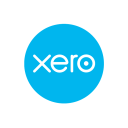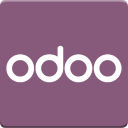Zoho vs Xero: Which tool is better?
- 01Zoho vs Xero: overview
- 02What's the difference between Zoho and Xero?
- 03Zoho pros and cons
- 04Xero pros and cons
- 05Zoho compared to Xero
- 06Xero compared to Zoho
- 07Features comparison
- 08Zoho vs Xero: Which is the best for your business?
- 09Promotions on CRM software
- 10Alternatives to Zoho & Xero
Access up to $2,500 savings on Zoho & $432 on Xero
Zoho
$2,500 in credits for 1 year
Access up to $2,500 savings on Zoho & $432 on Xero
Are you looking for an integrated suite of tools that goes beyond just accounting? A common pain point is finding an efficient cloud based accounting solution that manages all financial tasks in one place and is easy to use. The market is flooded with numerous financial management tools that offer a wide range of features such as accounting, invoicing, inventory management, payroll, bank reconciliation and more. It can be very overwhelming to choose the right one that fits your specific requirements.
Therefore, it is essential to evaluate the features and determine which functionalities align best with your financial management needs. But, fret not, we have done the hard part for you. After extensive research and trying out the free trials, we have narrowed down our choices to two top contenders - Zoho and Xero. By carefully examining their features and capabilities, we aim to weigh the advantages and disadvantages of each platform to arrive at a well-informed conclusion.
Zoho vs Xero: overview
To begin, it's essential to clarify that Zoho and Xero are prominent accounting software solutions, each catering to the financial management needs of businesses worldwide.
Zoho, recognized for its extensive suite of business applications, offers Zoho Books as part of its accounting software offerings. Zoho Books boasts a user-friendly interface and a diverse set of features, enabling efficient bookkeeping, invoicing, expense tracking, and more. In contrast, Xero has garnered popularity for its intuitive and comprehensive accounting software, providing businesses with tools for invoicing, bank reconciliation, financial reporting, and payroll management.
Now, let's take a look at the comparison of Zoho vs Xero. We'll explore their distinctive features, pricing models, and industry-specific functionalities to assist you in making an informed decision when selecting the ideal accounting software for your business needs.
What's the difference between Zoho and Xero?
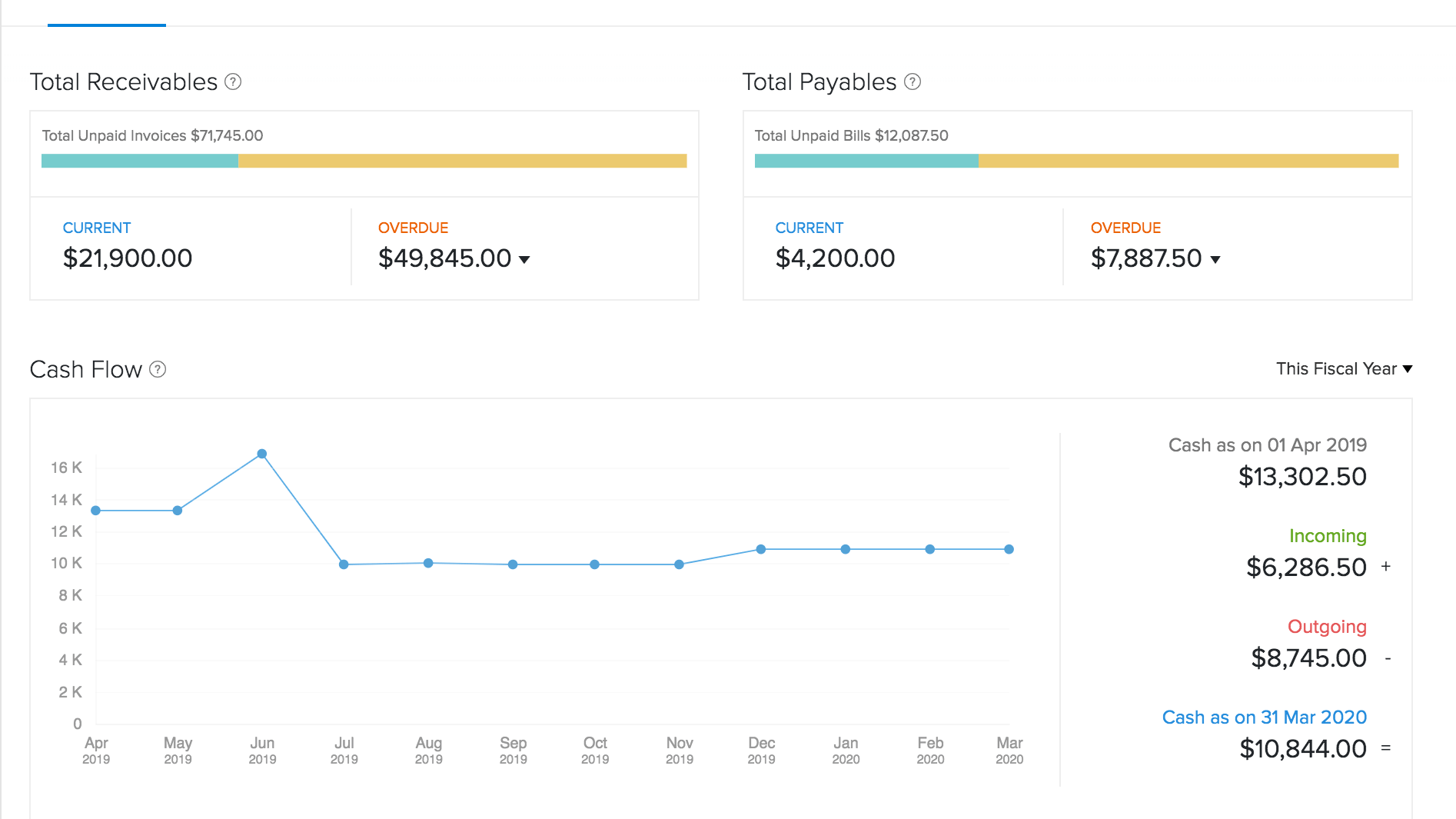
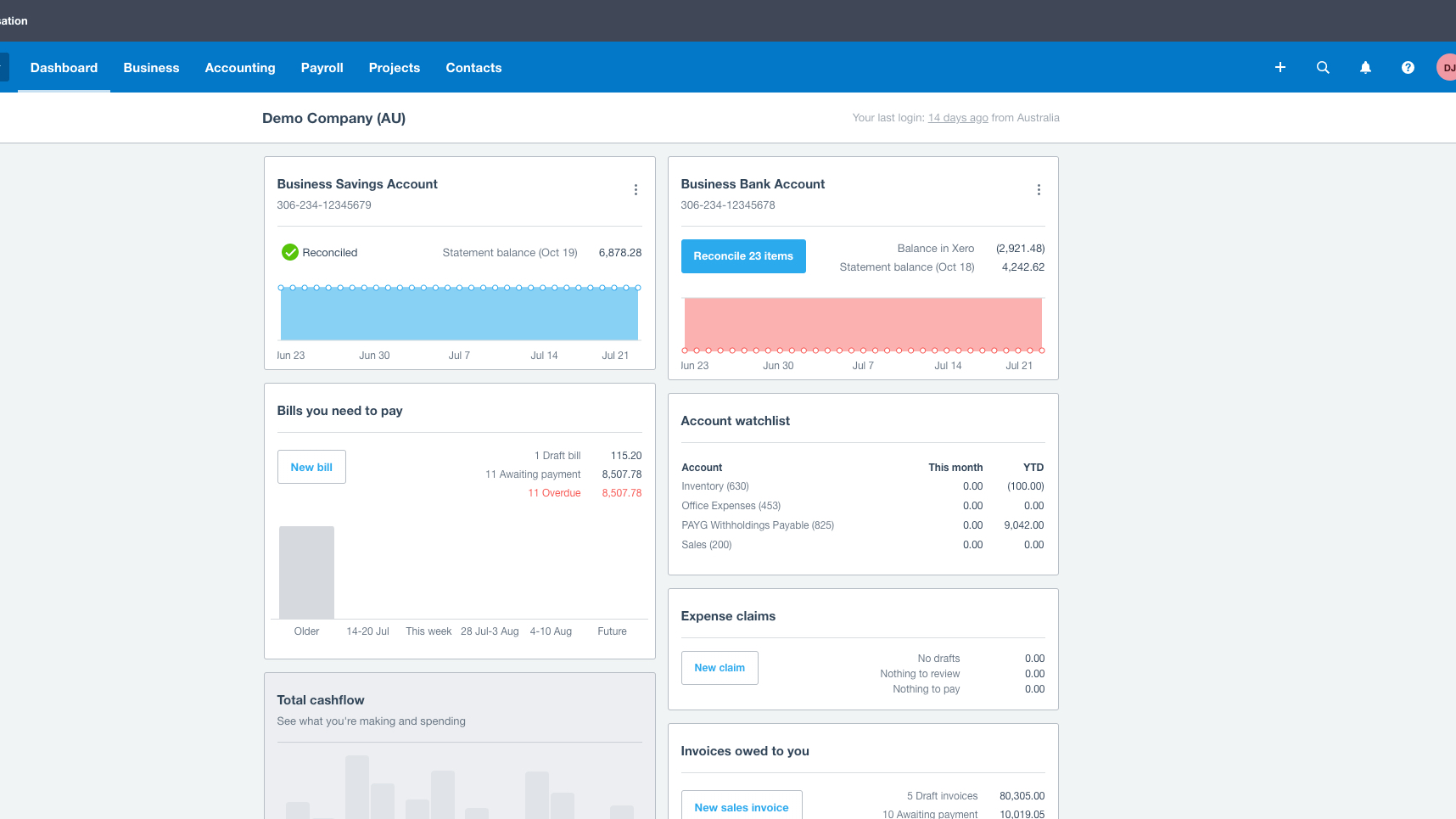
When delving into the distinctions between two prominent cloud-based financial applications, Zoho and Xero, it becomes evident that several key factors set them apart. These differences revolve around the breadth of services offered, pricing structures, scalability, and integration capabilities.
Firstly, Zoho distinguishes itself by providing a comprehensive suite that extends well beyond accounting. It serves as a versatile one-stop solution accommodating the multifaceted needs of various industries. Zoho's unique advantage lies in its seamless integration with other Zoho products like CRM, project management, and HR, creating a unified ecosystem. In contrast, Xero primarily focuses on accounting and financial management, making it a more specialized choice.
When analyzing pricing plans, Zoho emerges as the more cost-effective option. It not only offers competitive rates but also provides a free trial with limited features, making it accessible for businesses exploring their options. In contrast, Xero adopts a subscription-based pricing model that can become relatively expensive as a business expands and requires access to advanced features. While Xero caters to businesses of different sizes, Zoho's modular pricing structure is particularly appealing to smaller organizations looking to manage costs effectively.
Both platforms offer third-party app integration, granting users flexibility to extend their software's functionality. However, Xero's extensive suite of applications may provide more seamless integration opportunities. Conversely, Zoho's extensive array of applications allows businesses to discover specialized solutions tailored to specific aspects of their operations, rendering it a versatile choice for those seeking precise functionalities within their ecosystem.
In conclusion, the choice between Zoho and Xero hinges on your business's unique needs and demands. Zoho shines as a comprehensive, cost-effective solution with a vast ecosystem, ideal for smaller organizations seeking value and versatility. Conversely, Xero excels in accounting and financial management, making it a strong contender for those who prioritize financial precision and scalability.

$2,500 in credits for 1 year on Zoho
Get $2,500 in credits for 1 year on Zoho and up to $2,500 savings with Secret.
Zoho pros and cons
What are the advantages of Zoho?
- Suite of applications: Zoho offers a comprehensive suite of business applications, including CRM, accounting, marketing automation, project management, and more, providing an integrated solution for various business needs.
- Customization options: Zoho allows users to customize its applications to suit their specific requirements, enabling businesses to tailor the software to their unique processes and workflows.
- Affordable pricing: Zoho offers competitive pricing options, making it accessible for businesses of all sizes, including free plans for certain applications.
- User-friendly interface: Zoho's user interface is intuitive and easy to navigate, making it user-friendly even for non-technical users.
- Data security and privacy: Zoho employs robust security measures, data encryption, and regular backups to ensure that sensitive business information is protected from unauthorized access and potential data breaches.
What are the disadvantages of Zoho?
- Limited advanced features: Some advanced features available in other software may be limited or require higher-priced plans in Zoho's applications.
- Learning curve: While Zoho's interface is user-friendly, mastering the full potential of its suite may require some time and training.
- Integration with other platforms: Although Zoho offers various third-party integrations, it may not have the same level of integration depth as some other software in certain industries.
- Support quality: Some users have reported mixed experiences with Zoho's customer support, with occasional delays in response or resolution times.
- Occasional performance issues: Zoho generally performs well for most small to medium-sized businesses, some users may experience slowdowns or lag during peak usage times or when handling significant amounts of data.
Compare Zoho to other tools
Xero pros and cons
What are the advantages of Xero?
- User-friendly interface: Xero offers an intuitive and user-friendly interface that makes it easy for both accounting professionals and business owners to navigate and perform financial tasks.
- Accessibility: Xero is cloud-based, allowing users to access their financial data from anywhere with an internet connection, providing flexibility and convenience for remote work and on-the-go access.
- Extensive integrations: Xero integrates seamlessly with numerous third-party applications, including banking institutions, payment gateways, payroll systems, and more, enhancing its functionality and expanding its capabilities.
- Real-time updates: Xero provides real-time updates of financial data, enabling users to stay on top of their cash flow, expenses, and financial performance at any given moment.
- Collaborative features: Xero offers collaborative features, such as multi-user access and secure sharing of financial information, facilitating collaboration between team members and accountants in real-time.
What are the disadvantages of Xero?
- Pricing: Xero's pricing can be relatively higher compared to some other accounting software, especially for businesses with larger teams or requiring advanced features.
- Limited inventory management: Xero's inventory management capabilities are relatively basic and may not meet the needs of businesses with complex inventory requirements.
- Customer support: Some users have reported mixed experiences with Xero's customer support, with occasional delays in response or difficulties in resolving issues promptly.
- Learning curve: While Xero's interface is user-friendly, learning to utilize its full range of features and functionalities effectively may require some time and training.
- Reports customization: While Xero provides various pre-built financial reports, the level of customization for reports may be limited compared to more advanced accounting software.
Compare Xero to other tools
Zoho compared to Xero
When contrasting Zoho and Xero, Zoho emerges as a versatile business management solution with its extensive suite of tools tailored to various operational needs. Zoho's array of applications covers everything from customer relationship management (CRM) and project management to email marketing and document collaboration. With its user-friendly interface and seamless integration across its applications, Zoho offers a holistic approach to streamlining business processes.
Although both Zoho and Xero have their strengths, Zoho's broader scope of applications positions it as a multifaceted business management suite, accommodating diverse operational facets. Conversely, Xero's specialization in financial management ensures a focused and efficient approach for businesses primarily concerned with maintaining their financial health.
Is Zoho better than Xero?
Whether Zoho or Xero is better for your business depends on your specific needs and priorities. Both platforms offer different strengths and cater to different aspects of business management.
Zoho is known for its wide range of integrated applications, including CRM, project management, HR, and more. It provides a comprehensive suite of tools that can streamline various aspects of your business operations. If you are looking for an all-in-one platform that can handle multiple functions, Zoho might be the preferable option.
On the other hand, Xero is a specialized accounting software known for its strong accounting capabilities. It excels in financial tracking, invoicing, billing, bank reconciliation, and financial reporting. If your main focus is on robust accounting features, Xero may be the better fit for your business.
What is Zoho best used for?
Zoho excels as a versatile platform, offering a diverse array of integrated enterprise applications that cater to various aspects of business operations.
From project management to HR, inventory, analytics, and beyond, Zoho provides comprehensive solutions, making it an ideal choice for small to mid-sized businesses seeking to streamline and consolidate their different business functions within a single, cost-effective system. While Zoho does offer accounting tools, its true value lies in the breadth of services it offers, providing a convenient 'one-stop-shop' solution for businesses aiming to optimize their workflow and boost overall efficiency.
With Zoho, organizations can seamlessly manage multiple facets of their operations under one unified umbrella.
Can Zoho replace Xero?
Zoho can serve as an alternative to Xero for certain businesses, but it may not fully replace Xero's depth and comprehensiveness in the accounting domain.
For businesses that specifically prioritize robust accounting functionalities, Xero might be the more suitable choice due to its detailed financial management features.
However, for those seeking a holistic and all-encompassing business solution, Zoho can be a viable and attractive alternative to Xero. Zoho's suite of integrated applications includes Zoho Books for accounting, as well as CRM tools, project management features, HR solutions, inventory management, and analytics.
The decision between Zoho and Xero depends on the unique requirements and priorities of your enterprise. If your business needs go beyond accounting and you are looking for an all-in-one solution, Zoho may be a suitable replacement. However, if your primary focus is on accounting and financial management, Xero might be the better fit for your needs.
Is Zoho cheaper than Xero?
When it comes to pricing, Zoho has a clear advantage over Xero, offering more competitive rates that cater to businesses of all sizes and budgets.
With its diverse range of applications, Zoho provides different plans that can accommodate various business requirements, ensuring that companies of all scales can find a cost-effective solution tailored to their specific needs. This flexibility in pricing options makes Zoho an appealing choice for startups, small businesses, and even larger enterprises looking to optimize their expenses without compromising on the quality and scope of services. Whether you're a growing startup or an established corporation, Zoho's pricing structure offers affordability without compromising on functionality.
Is there a better CRM software than Zoho?
There are other accounting management software alternatives that may be considered better than Zoho, depending on the specific requirements and scale of a business.
For large-scale enterprises with complex needs, solutions like Salesforce or Microsoft Dynamics might be superior alternatives. These platforms offer advanced and sophisticated features that cater to extensive customer relationships, sales processes, and data analytics, making them suitable for handling the complexities of sizable organizations.
On the other hand, for smaller businesses or those seeking a user-friendly and cost-effective solution, Zoho remains an excellent choice. Zoho provides a comprehensive suite of tools and integrated applications that can streamline various business operations, making it a suitable option for small to mid-sized companies.
$2,500 in credits for 1 year on Zoho
Get $2,500 in credits for 1 year on Zoho and up to $2,500 savings with Secret.
Xero compared to Zoho
When contrasting Xero and Zoho, Xero takes the lead as a specialized accounting software dedicated to efficiently managing financial aspects. Xero offers a range of features tailored to financial tasks such as invoicing, expense tracking, bank reconciliation, and financial reporting. Its intuitive interface and automation capabilities streamline accounting processes, making it a preferred choice for businesses seeking precise financial management.
While both Xero and Zoho offer valuable solutions, Xero's specialization in accounting and financial tasks makes it an essential tool for maintaining accurate financial records and ensuring compliance. Zoho, with its wider scope of applications, is better suited for businesses seeking an integrated approach to managing diverse operational areas.
Is Xero better than Zoho?
If your business's primary requirement revolves around powerful accounting software, Xero would undoubtedly emerge as the more favorable choice over Zoho.
Xero's core strength lies in its specialization in delivering a comprehensive and full-featured financial management system, providing businesses with robust accounting functionalities. The platform boasts a user-friendly interface that caters to business owners with limited accounting knowledge, making it accessible and intuitive for users of all levels. With Xero's emphasis on financial management and seamless user experience, businesses can efficiently manage their finances and gain valuable insights to make informed decisions.
Whether you're a small startup or an established enterprise, Xero's accounting prowess offers unparalleled convenience and efficiency for your financial needs.
What is Xero best used for?
Xero stands out as a leading cloud-based accounting solution that empowers businesses with its seamless and efficient financial management capabilities.
From streamlining invoicing and bank reconciliation to tracking expenses and generating insightful reports, Xero covers a wide array of essential financial tasks with ease. Particularly well-suited for small to mid-sized businesses, Xero caters to their unique needs by offering essential features like multi-currency support, payroll management, and efficient inventory tracking. This comprehensive approach to financial management makes Xero the go-to platform for businesses seeking an all-in-one solution that enhances their financial efficiency and enables them to make well-informed decisions for sustainable growth.
Can Xero replace Zoho?
Xero and Zoho serve different purposes and cater to different business needs, so one cannot entirely replace the other.
Xero is specialized in accounting software, and it excels in its core function of financial management. It is the ideal choice for businesses primarily seeking robust and sophisticated accounting capabilities, including features like invoicing, billing, bank reconciliation, and financial reporting.
Conversely, Zoho offers a comprehensive suite of solutions that go beyond accounting. It provides a diverse range of integrated applications for various aspects of business operations, such as project management, customer relationship management (CRM), HR, inventory management, and analytics.
If your primary focus is on accounting and financial management, Xero is likely the better option. However, if you need a more comprehensive solution that includes accounting along with other business applications, Zoho would be a better fit.
Is Xero cheaper than Zoho?
While Xero's pricing plans may appear higher compared to Zoho's, it's essential to consider the exceptional value the platform brings to the table.
With its focus on advanced financial management functionalities, Xero caters to businesses that prioritize in-depth financial capabilities and seamless accounting processes. The investment in Xero can prove justified, as it empowers businesses with robust features like invoicing, bank reconciliation, expense tracking, and detailed reporting. These capabilities enable businesses to gain valuable insights into their financial health, make informed decisions, and optimize their financial performance.
For companies seeking a comprehensive and efficient accounting solution, Xero's higher pricing can be outweighed by the significant benefits it offers in streamlining financial operations and ensuring accurate financial reporting.
Is there a better Accounting software than Xero?
While Xero is a popular and widely used accounting software known for its user-friendly interface and comprehensive features, there are several other accounting software options available in the market.
Some notable alternatives to Xero include QuickBooks, FreshBooks, Wave, Zoho Books, and Sage, among others. Each of these platforms offers unique features, pricing plans, and integrations, catering to different business sizes and industries.
While Xero remains a prominent choice, exploring the alternatives can lead to discovering the perfect accounting software that aligns seamlessly with your specific business requirements, enhancing efficiency and financial management.
90% off for 6 months on Xero
Get 90% off for 6 months on Xero and up to $432 savings with Secret.
Features comparison
Zoho Outshines Xero in User-Friendliness

When it comes to ease-of-use, Zoho has the upper hand over Xero.
As a cloud-based tool designed for small-to-midsize businesses, Zoho offers an intuitive interface that's user-friendly even for those without advanced technical skills. The platform's clean layout and easy navigation ensure that users can easily access all the features they need.
In contrast, Xero, while offering a comprehensive set of features, has a steeper learning curve. It takes more time to familiarize oneself with how different functions are located and operate in Xero.
Therefore, in terms of ease-of-use, Zoho is better poised to serve newbies in the entrepreneurial world, helping them spend less time on accounting and more on growing their business.
Zoho Offers More Comprehensive Automation than Xero

Zoho's comprehensive automation capabilities extend beyond basic finance and accounting tasks. With Zoho, businesses can automate sales processes, lead management, customer support, and even HR workflows, streamlining operations and boosting productivity across departments. The integration of Zoho's automation features with its suite of business applications creates a seamless ecosystem, allowing data to flow seamlessly between different functions, reducing manual data entry and the risk of errors.
Furthermore, Zoho's automation tools are highly customizable, enabling businesses to create automated workflows tailored to their unique processes and requirements. Whether it's automating email campaigns, lead nurturing, or inventory replenishment, Zoho offers a more extensive array of automation possibilities compared to Xero.
Xero Surpasses Zoho in Versatile Integrations

Exploring the integration possibilities, Xero shines brighter when compared to Zoho.
Xero's robust API allows seamless integration with a myriad of apps and software, like HubSpot, Shopify, Square and Trello, that businesses often use for daily operations. From inventory management applications to customer relationship management tools, Xero integrates effortlessly, enhancing productivity in your startup.
On the other hand, Zoho does provide integrations, but the spectrum is not as broad as that of Xero. For those relying heavily on diverse digital tools for efficient functioning, Xero's rich integration ecosystem makes it a more preferable choice.
Thus, when it comes to broadening the scope of your operations by integrating with several other tools, Xero outperforms Zoho.
Xero Provides More Efficient Financial Management than Zoho
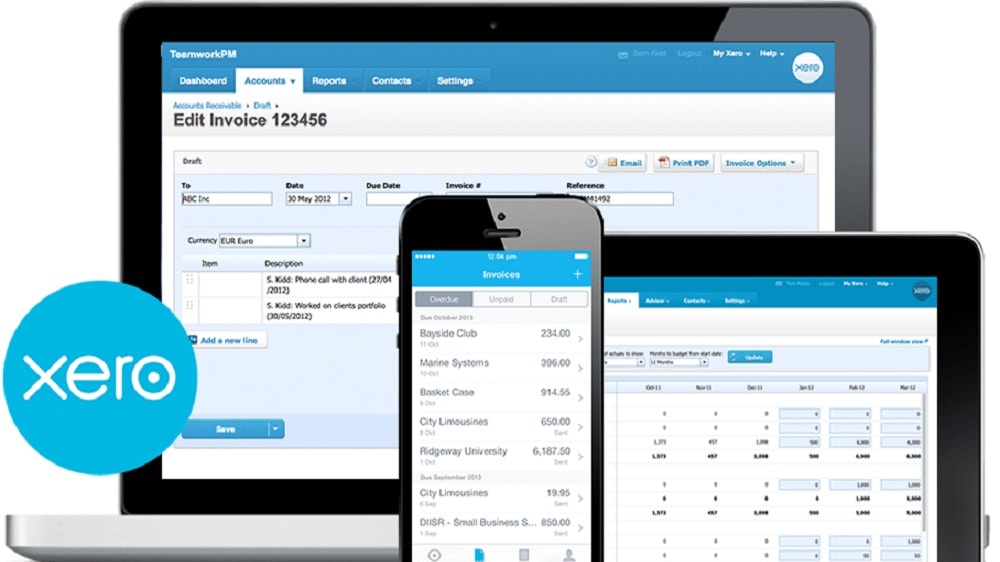
While Zoho excels at comprehensive CRM and collaboration tools, Xero shines in the realm of finance management.
In addition to real-time cash flow tracking, Xero offers a range of advanced financial reporting and analysis tools. Business owners can generate detailed financial statements, profit and loss reports, balance sheets, and cash flow statements with ease, providing valuable insights into their financial performance.
Xero allows its users to connect their bank accounts directly to the platform, providing real-time cash flow tracking and transaction details. This feature is crucial for businesses to maintain healthy finances, making Xero a superior choice over Zoho for more comprehensive and efficient financial management.
Xero Offers More Comprehensive Bill Tracking than Zoho

Both platforms provide robust tools to manage business operations; however, when it comes to tracking bills, Xero has an edge over Zoho.
Xero's comprehensive bill tracking capabilities extend beyond basic invoice management. Businesses using Xero can set up recurring bills, automatically match payments to invoices, and generate aging reports to monitor overdue bills effectively. The platform's intelligent automation also simplifies the accounts payable process, reducing manual data entry and minimizing the risk of errors.
In contrast, while Zoho provides solid inventory management features, its bill tracking functionality is more limited. Businesses may find it challenging to manage multiple bills efficiently and might require additional third-party integrations to streamline bill payments.
Zoho Provides More Robust Mobile CRM Operations than Xero
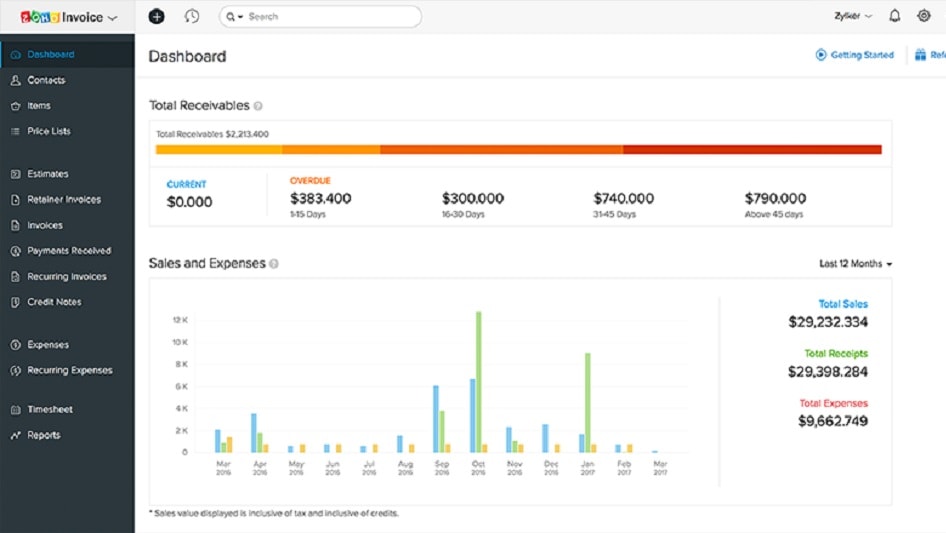
Both Zoho and Xero understand the need for mobility in today's business world. However, Zoho offers users a mobile Customer Relationship Management (CRM) feature, which is distinctive. This allows entrepreneurs to manage their customer interactions from anywhere, providing an edge over Xero, which currently doesn’t have this feature.
Zoho's mobile CRM operations empower businesses to stay connected and responsive on the go. With the Zoho CRM mobile app, users can access customer data, manage leads, track sales opportunities, and communicate with clients in real-time, all from their smartphones or tablets. This level of accessibility and flexibility ensures that sales representatives and business owners can maintain strong customer relationships, even when they are away from the office.
Zoho Handles Multiple Sales Channels Better Than Xero
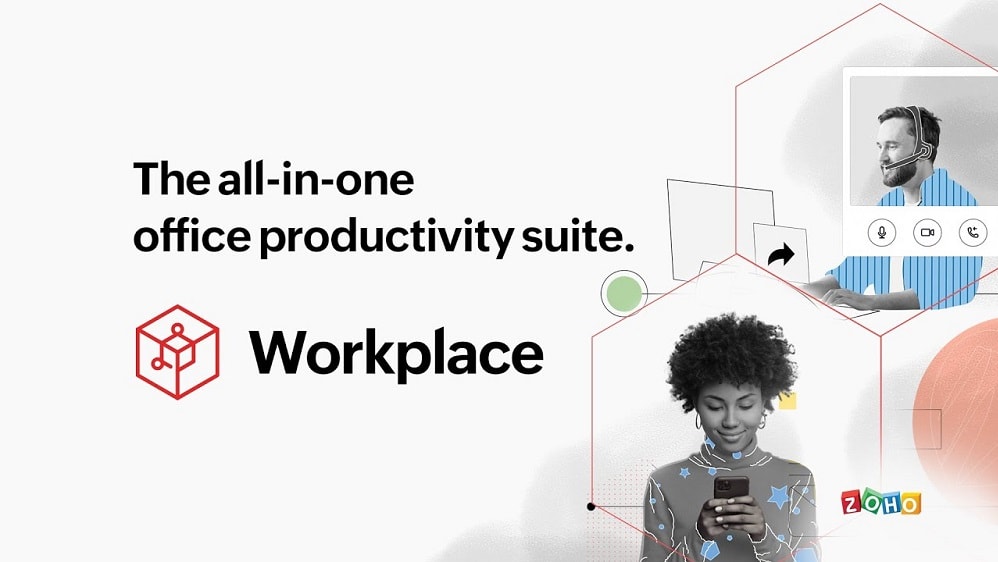
While both tools provide inventory management features, Zoho enables multi-channel inventory management. This feature gives businesses a competitive edge by streamlining the management of products across various sales channels, including online marketplaces, brick-and-mortar stores, and e-commerce platforms.
In contrast, while Xero's inventory feature provides valuable insights into product performance, it lacks the capability to manage inventory across multiple sales channels simultaneously. Users may need to manually update inventory levels across different platforms, which can lead to discrepancies and operational inefficiencies.
With Zoho's robust multi-channel inventory management, businesses can optimize stock levels, improve order fulfillment, and enhance customer satisfaction, making it a more comprehensive solution for handling sales across various channels.
Subscribe to our newsletters.
No FOMO here. Stay up-to-date on all the latest deals and news with our monthly newsletter straight to your inbox like 126,000+ entrepreneurs (+ Get 10% off on on our Premium Membership!)
Zoho vs Xero: Which is the best for your business?
Zoho is the best tool for you if:
- You seek an integrated suite of applications beyond accounting, such as CRM, project management, and HR
- You want a user-friendly interface with customizable options and affordable pricing plans
- Your business requires comprehensive reporting, automation, and a wide range of industry-specific functionalities
- You prioritize ease of use, mobile app functionality, and robust inventory management capabilities
- You value data security and privacy, along with accessible customer support options
Xero is the best tool for you if:
- Your main focus is on accounting and financial management, with a user-friendly interface suitable for non-accounting professionals
- You need seamless integrations with third-party applications like banking, payment gateways, and payroll systems
- Real-time financial updates, collaborative features, and multi-user access are essential for your business
- You require detailed financial reporting, bank reconciliation, and comprehensive billing and invoicing capabilities
- Your business prefers a cloud-based solution for efficient financial tracking, even on the go

$2,500 in credits for 1 year on Zoho
Get $2,500 in credits for 1 year on Zoho and up to $2,500 savings with Secret.
Alternatives to Zoho & Xero
Promotions on CRM software
Start saving on the best SaaS with Secret.
Secret has already helped tens of thousands of startups save millions on the best SaaS like Zoho, Xero & many more. Join Secret now to buy software the smart way.


